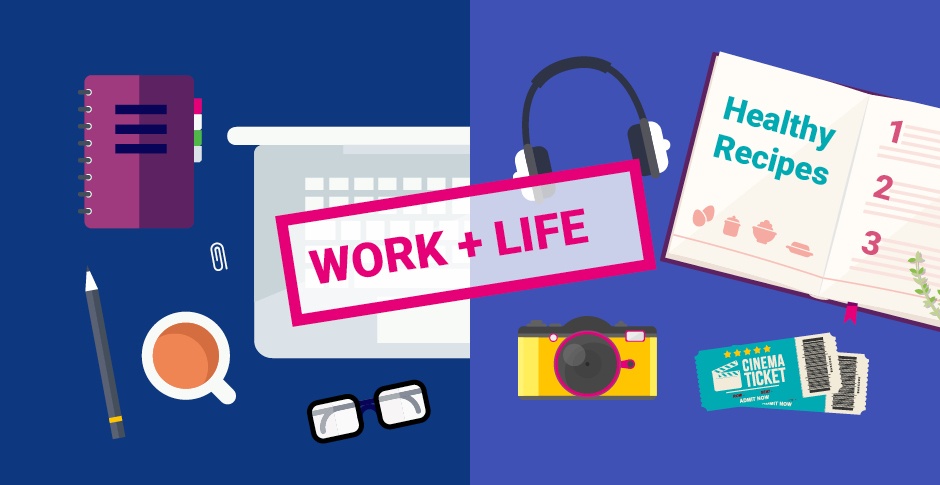Why you shouldn’t be chasing work-life balance (and what you should do instead)
Work-life balance. It’s a popular phrase, but just how realistic is it? We speak to an expert to find out how setting work-life boundaries can help you feel more fulfilled at home and at work.
For many of us, work-life balance is a wonderful idea, but a hard concept to master.
“Work-life balance is the holy grail mirage that we chase to achieve that elusive dream of a guilt-free life where we can be fully present, engaged and fulfilled in whichever domain we are in,” says SEEK’s resident psychologist Sabina Read. The difficulty is, says Sabina, that the very notion of work-life balance relies on a perfect split between our personal and professional lives – something that is almost impossible in today’s fast-paced and on-call world.
The problem with work-life balance
The concept of work-life balance works on the principle of being able to allocate our time and attention to particular issues at specific times. According to Sabina, the problem is that this is not how our brains work. “The human brain is more likely to naturally shift between different activities, so while we are engaging in one task, we are also thinking of several others concurrently,” she says. “When this occurs, we tend to feel overwhelmed and guilty because we have “failed” at balancing the many parts of our lives that matter.”
The answer, says Sabina, is to implement work-life boundaries instead of aiming for a work-life balance.
The importance of work-life boundaries
“Work-life boundaries tap into the notion that we can be more fluid between work and home and often integrate the two,” says Sabina. She also emphasises that there is little point in waiting for a boss, partner, client or colleague to set work-life boundaries for us. “No one can define or set work-life boundaries for you,” she says. “Healthy and productive boundaries will reflect your current needs, priorities and values, and these may ebb and flow across your lifespan.”
Setting boundaries related to how you want to spend your time, energy and resources leads to a sense of stability and mindfulness, which contributes to our overall sense of productivity, achievement and well being.
How to set work-life boundaries
When it comes to work-life boundaries, it’s important to reflect on when you feel happiest and most fulfilled.
Research published in the Organizational Dynamics journal suggests we can set work-life boundaries depending on our personality and preferred working style.
- Separators
Separators divide their work and personal life by having regular, set times dedicated to either working or not working. “For some people, boundaries will mean separating work from home at the end of the working day, which may include not reading or responding to emails after 6pm and before 9am,” says Read.
- Integrators
Integrators mix work and personal time throughout the day. “These people may mix personal and professional activities by attending personal commitments during the day or always being home for dinner with partner/kids/friends, then returning to the laptop after hours,” says Sabina.
Integrators can set work-life boundaries by creating clear priorities and communicating these with the people around them. For example, if you’re a parent who wants to attend an activity at your child’s school, let your manager know that you’ll be unavailable during that period, but will work in the evening to make up for the lost time.
Another way to help establish work-life boundaries for integrators is to set a time buffer (say 30 minutes) between each activity, which allows you to create a distinction between work and personal time.
- Cycler
Cyclers tend to have jobs that fluctuate throughout the year, such as accountants who are busy during tax time, accommodation owners who are busy during peak holiday periods or parents who work less during school holidays. During the quieter times of the year, cyclers have more time to focus on their personal life and hobbies.
Forward planning by blocking out specific chunks of time dedicated to either work or personal life can help cyclers can establish clear work-life boundaries. Communication is key for cyclers, for example, letting those you work with know your availability in advance.
Rather than focusing on work-life balance, setting work-life boundaries can instead lead to you feeling 100% present and committed when you are at work, and 100% present and committed when you are away from work. And there’s no better balance than that.
